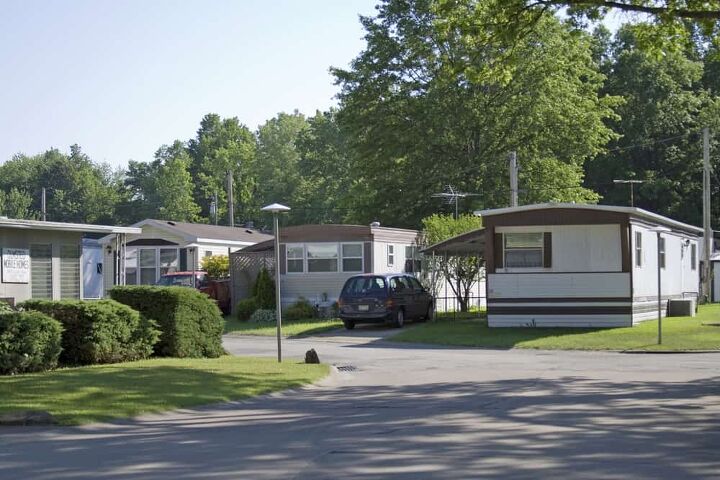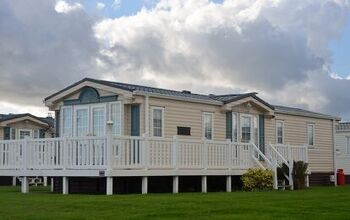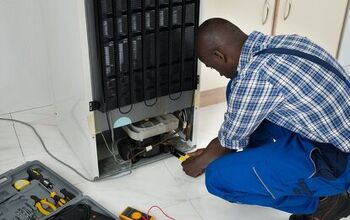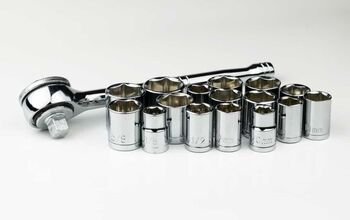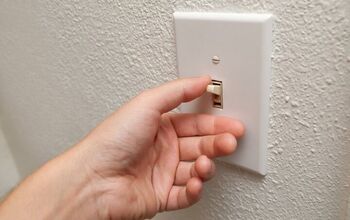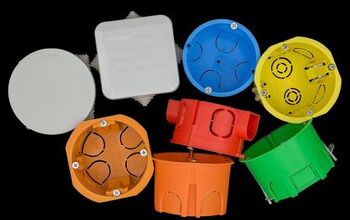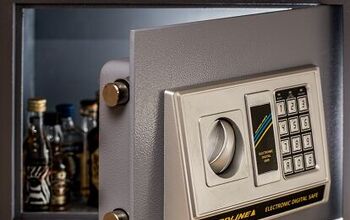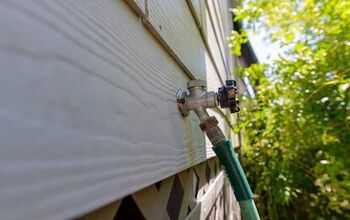How To Unfreeze Pipes In A Mobile Home (Step-by-Step Guide)

Mobile homes require a lifestyle that very few people can handle in large doses, especially if you’re looking to start doing stuff during the winter. During the winter, you might start to notice that your pipes are more prone to freezing than a typical home’s would be. This is primarily due to all the exposed, above-ground plumbing. But, what can you do about it?
If your pipes have frozen in a mobile home, the best way to make sure they thaw out is to do so gently. Pour salt down your drains, turn on your faucets, look for leaks in your skirting, and turn up the heat throughout your home. If your main water line is frozen, plug in the heat tape or replace it.
There are so many different ways that pipes can freeze in a mobile home, it’s kind of scary. While it can be intimidating to try to unfreeze pipes, it’s possible to make it happen without too much of a problem. To make things easy, we created a step-by-step guide.
Do You Need a Faucet, Fixture, or Pipe Repair or Replacement?
Get free, zero-commitment quotes from pro contractors near you.

How To Troubleshoot Frozen Pipes In A Mobile Home
Frozen pipes are no laughing matter, and knowing what causes them is half the battle. Knowing that, we’ve decided to create an easy-to-follow step by step guide to help diagnose things.
- Before anything begins, turn on a water line to see if you’re getting running water. If you are, you have a frozen pipe somewhere in the mix. If not, then it’s your main water line that’s frozen. Either way, turning on the pipes can help relieve pressure and get ice moving once the pipes are thawed out.
- Crank up the heat in your home. This helps thaw out your pipes, believe it or not. It also can help prevent your pipes from refreezing after all the labor of getting them thawed out.
- If you have a frozen pipe, check for holes in your mobile home skirt or underbelly first. The cold air probably leaked in and caused it. You will need to patch holes up in order to make sure that your pipes stay unfrozen after your troubleshooting.
- If you have a frozen main water line, then you will need to check your heat tape. If the heat tape doesn’t feel warm, then you need to make sure it’s plugged in or replace it if it’s dysfunctional. The heat tape is what keeps the main water line warm enough to stay unfrozen.
- Should the tape feel warm but the main water line still remains frozen, check your water heater room. Sometimes, water heater rooms end up being the freezing source. This usually happens as a result of a draft. Get better insulation and slowly heat up your room.
- Work on thawing out frozen pipes as necessary. This, in and of itself, is a special process…
Video: Try to Spot a Gap
How To Spot A Frozen Pipe
Finding which pipe is frozen can be done both visually and physically. Visually, you can look for signs of frost or discoloration. A pipe that’s not frozen will not have frost building upon it and also will probably be uniform in color.
If you are more of a “touch” person, look for pipes that feel icy to the touch and that have a “thick” sound when tapped with a wrench. The colder the pipe, the more likely it is that it’s frozen solid. Unfrozen pipes will be warmish and sound hollow in comparison.
How To Thaw Out A Frozen Pipe
Once you’ve spotted a frozen pipe, there are several ways that you can thaw it out. The most popular methods include:
- Using A Heat Gun. Heat guns, like the ones that are used in major construction projects, are ideal. To use it properly, keep the temperature up to around 125 degrees to 150 degrees Fahrenheit and point it at the pipe. Do not use too high a setting, as this can damage the pipe and cause it to explode.
- Using A Hair Dryer. Yes, the one by Conair sitting on your desk will work well here. Hairdryers are great because everyone has one and they are incredibly gentle on pipes. Just blow hot air there and you should be good to go.
- Using A Space Heater. If you have a frozen water heater room, or if you have a hole in your skirt that caused the freezing, it may make sense to bring a battery-operated space heater to the area to make sure that you can thaw things out. Be careful, though, since space heaters can be a fire hazard. Keeping an eye on it is a must.
- Using Wet Towels. I’m not sure how people get wet, warm towels when their pipes are frozen, but apparently this works as long as you replace said towels every 10 minutes. In order for this to work, you will need to make sure that the towels are still warm to the touch when they’re touching the pipes.
- Using Salt. Pouring salt down the sink can help lower the freezing point of ice, and can actually be more effective than a heater in some situations.
Should You Call a Plumber or a Maintenance Professional?
Let’s say that you’ve just bought the mobile home, it’s your first time in a winter setting with one, and your pipes are frozen. You don’t know what to do and you’re at a loss. Trying to figure out if you should call a maintenance crew can be difficult. However, most communities will be happy to help people who are new to trailer life.
If you find yourself in a bind, it’s always a good idea to reach out to someone who might understand how to make the most of your plumbing situation. Whether this is a neighbor or a maintenance crew doesn’t matter. What matters is knowing you need help, and reaching out before things get out of hand.
How Can You Prevent Frozen Pipes In A Mobile Home?
An ounce of prevention is worth a pound of cure here, and there’s really only so much you can do. The only thing you should really focus on is to try to keep heat locked into any place where water’s flowing. It’s vital that you winterize your mobile home. This means that you should do the following:
- Make sure your skirt and water heating room are both draft-free. No holes, no extra bits sticking out…just insulated is fine. You want to avoid any holes or ways that you could get cold air flowing into your plumbing area. The more insulated your area is, the better off you’ll be come winter.
- Keep your plumbing maintained. This includes things like adding a new heat tape when you need it and making sure your HVAC systems nearby are in ship-shape. A poorly maintained pipe is a pipe that will have more problems than just freezing up, anyway.
- Have a backup plan in case of a major winter freezeout. There will be some conditions where insulation and a skirt alone won’t do much for your mobile home’s water system. If you are dealing with a winter storm that is slated to get down to the negative ’20s, then you should have a backup plan.
- Turn up the heat. Hot air generated by your HVAC system can easily turn into a heat source for your water, too. By cranking up the heat upstairs, you make it easier for your pipes to stay in water-ready shape. Keeping your home at 80 degrees should be enough for most winters.
- Wrap insulation around problem pipes. If you know you’ve got a particular pipe that always freezes up, getting some insulation to keep it warm before the next storm hits can be a wise decision. We suggest using foam, fiberglass, or just about any other approved item you can find.
Do You Need a Faucet, Fixture, or Pipe Repair or Replacement?
Get free, zero-commitment quotes from pro contractors near you.

Related Questions
How do I keep a mobile home warm during the winter?
In many ways, keeping your mobile home warm is a lot like keeping other homes warm. You should work on adding insulation via weatherstripping your windows and doors, buy thermal curtains, make good use of your home’s heating system, and use area rugs as a way t help reduce drafts.
How cold does it have to be for pipes to freeze in a mobile home?
Generally speaking, it has to be fairly cold to see pipes freeze up in a mobile home. With most mobile homes, you’ll only start to see pipes freezing when it hits 20 degrees Fahrenheit or lower. Homes that are designed with heavy levels of insulation will take a lot more freezing temperatures before they start to freeze up.
Are mobile homes more prone to frozen pipes than regular homes?
Mobile homes are absolutely more prone to having pipes freeze up than a typical house or apartment building. The reason for this is simple. Most standard homes will have the majority of their plumbing go underground or in areas that are naturally insulated. With a typical mobile home, the pipes tend to be above ground, covered only by a skirt. It’s easy for a draft to get in there.

Ossiana Tepfenhart is an expert writer, focusing on interior design and general home tips. Writing is her life, and it's what she does best. Her interests include art and real estate investments.
More by Ossiana Tepfenhart



